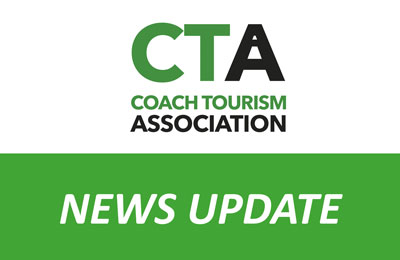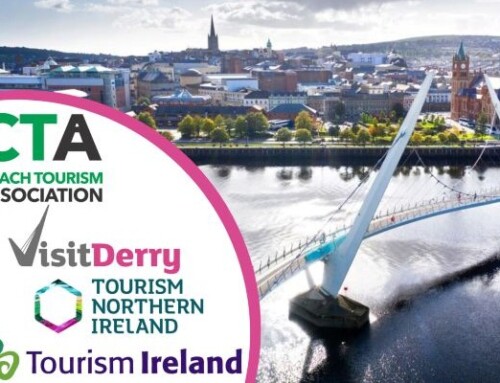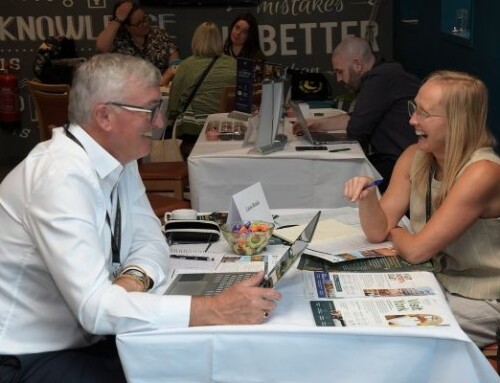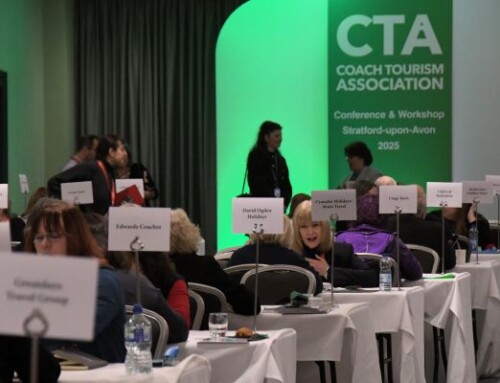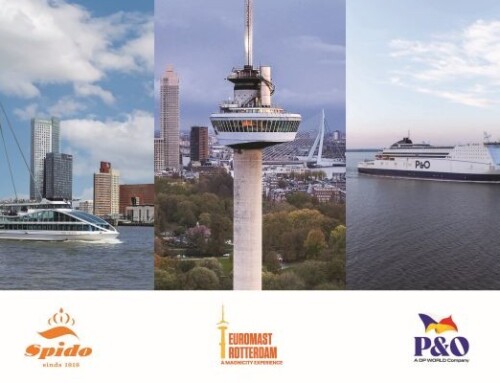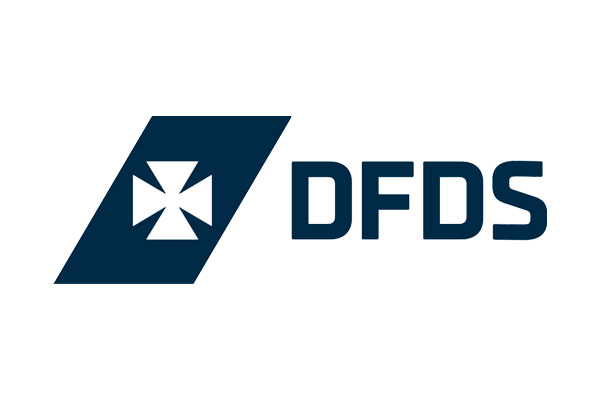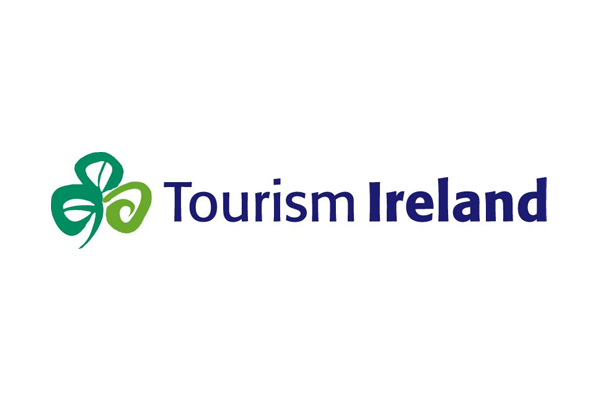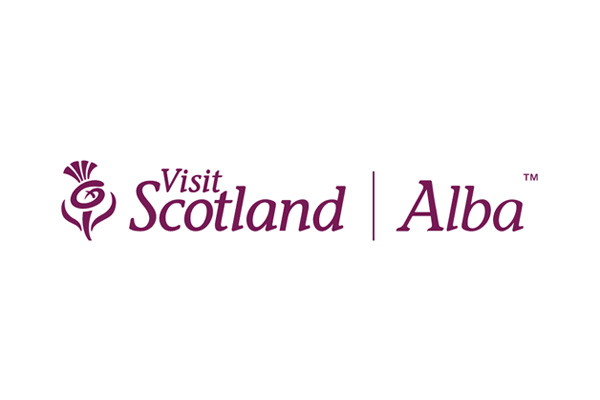COVID-19 Updates – week commencing 15/06/20
More updates of developments from the government and various links to interpretation and guidance.
Go to date:
15 June 2020 …
Tourism Alliance updates:
Treatment of Employee Expenses
HMRC has update a couple of pieces of guidance to businesses on the treatment of employee expenses. The first is in regard to paying travel and subsistence expenses for employees travelling to temporary workplaces.
The second is in regard to the tax treatment in situations where employees have taken office equipment home to work on or brought office equipment that they need to work at home.
Requests for Ministerial Direction
As a point of interest, it’s worth noting that over the last couple of days the Government has published a number of Ministerial Direction requests that Permanent Secretaries have made over the last few months in regarding the support schemes that the Government has put in place. In a nutshell, the Permanent Secretaries are responsible for Departmental expenditure programmes and are required not to spend public funds where they don’t believe that they will provide value for money. So these letters are from Permanent Secretaries stating that they have no idea whether various Coronavirus business support programmes represent value for money and are asking Ministers to tell them to do it anyway (ie., if this goes badly, it’s not my fault). These Ministerial Direction request cover initiatives including the Business Interruption Loans, the Future Fund, the Bounce Back Loans and the Discretionary Fund.
Needless to say, the Government has directed the Permanent Secretaries to continue operating the support schemes.
North of Tyne Growth Fund
The Government has launched the North of Tyne growth Fund which is available to SMEs planning an expansion project in Newcastle, North Tyneside and Northumberland with costs of at least £134,000. The Fund is specifically open to tourism and leisure businesses. The fund will pay a capital grant of between £40,000 and £200,000 to cover up to 30% of eligible expenditure provided that the project generates increased employment in the area.
https://www.gov.uk/business-finance-support/north-of-tyne-growth-fund
High Street TaskForce Support
Ahead of opening non-essential retail shops on Monday the Government has launched the High Street TaskForce which will use £50 million of England European Regional Development Fund money to provide training, information and advice for high streets in England. This support is open to local councils and all organisations involved with high streets such as BIDs.
https://www.highstreetstaskforce.org.uk/
Track the R-Rate
Finally, ahead of the non-essential retail opening on Monday, here a link to the government’s latest calculations of the R-Rate which also includes a regional R rates across England. The current rates are:
England 0.8-1.0
East of England 0.7-0.9
London 0.8-1.0
Midlands 0.8-1.0
NE and Yorkshire 0.7-1.0
North West 0.8-1.0
South East 0.8-1.0
South West 0.8-1.1
This indicates that the Government has little room for manoeuvre at the moment if the relaxation of rules increases the number of infections.
https://www.gov.uk/guidance/the-r-number-in-the-uk
UK Covid-19 Consumer Tracker Report: Week 3
The latest results of the UK Covid-19 Consumer Tracker Report, based on fieldwork from 1-5 June is now available. An interesting trend this week is the nation appears more negative in mind-set (overall mood and perceptions of when ‘normality’ will return are marginally down, while the proportion of people feeling the ‘worst is still to come’ has increased significantly). However, sentiment towards travel appears to be slightly improving e.g. in terms of likelihood to take a holiday, higher confidence in trips going ahead and marginally higher confidence in doing various leisure activities.
Other points of note:
- 27% believe the worst has passed regarding Covid-19. This is a slightly lower proportion than last week (29%), while a significantly higher proportion consider the ‘worst is yet to come’.
- There continues to be little expectation things will be returning to normal anytime soon, with just 29% expecting ‘normality’ by September and 52% by December.
- Our ‘Appetite for Risk’ score is fractionally up at 2.33 (based on a 1-4 scale on how comfortable people claim to be at doing selected activities e.g. eating in a restaurant or using public transport).
- 28% consider themselves fairly or very confident they would be able to take a holiday or short-break during the peak July/August period this year, which represents a fractional increase on last week.
- The main reasons driving this relative lack of confidence are again led by restrictions on travel by government (52%), fewer opportunities to eat or drink out (51%) and concerns about catching Covid-19 (45%).
- 41% expect to be taking fewer domestic short-breaks and holidays respectively compared to last year, which is unchanged from week 2.
- However, the proportions believing they will be taking a domestic short-break or holiday by this September is again up, albeit not significantly (23% vs 22%).
- In terms of region to be visited between now and September, South West still leads (19%) followed by Scotland (12%), although in reality little actually separates the second to eighth ranked regions. A clearer hierarchy of preference is visible for visits from October onwards, with South West and Scotland having more obvious leads.
- For the summer period, countryside/village and traditional coastal/seaside town destinations lead with 31% and 30% shares respectively. Cities move into second place for trips scheduled from October onwards.
- Focusing again on the peak June-Sept period, we see a broadly even split between the leading accommodation types, although from October, hotels/motels/inns take a clear lead, with caravan/camping moving down the rankings.
- As restrictions lift, outdoor areas and activities (e.g. beaches, trails, theme parks) look set to attract higher than usual levels of visitors than normal, while predominantly indoor activities/venues (e.g. restaurants, spas, museums, galleries) are likely to face a lengthier period of subdued demand.
New support for reopening and recovery of high streets
The High Streets Task Force has announced that they will provide access to tools, training, information and advice for high streets across England as part of the government’s efforts to get shops back in business safely from 15 June. This support is open to local councils and all organisations involved with high streets and will include free access to online training programmes, webinars, data and intelligence on topics including recovery planning and coordination, public space and place marketing.
New ONS report: Coronavirus and the impact on output in the UK economy: April 2020
The report provides an analysis of monthly growth for the production, services and construction industries in the UK economy between March 2020 and April 2020, highlighting the early impact from the coronavirus (COVID-19) pandemic.
The All-Party Parliamentary Group for Hospitality and Tourism’s report Pathways to Recovery published
The report was researched and written by UK Hospitality, who provide the secretariat for the group, highlighting the scale of the impact of the COVID-19 crisis on the UK’s hospitality and tourism sectors and outlining a series of recommendations to help businesses recover.
Other Government updates
- Local authorities across England have been allocated a share of £300 million to support the new Test and Trace service. The funding will help local communities develop and action plans to reduce the spread of coronavirus in their area. Work will build on the continued efforts of communities to respond to the pandemic locally
- Additional information has been added to the guidance on certain expenses covering paying travel and subsistence expenses to an employee travelling to a temporary workplace.
- A new section on returning office equipment has been added to the Check which expenses are taxable if your employees work from home due to coronavirus (COVID-19) page
CPT Operational updates:
CORONAVIRUS JOB RETENTION SCHEME – OVERVIEW OF CHANGES
On Friday 29th May, the Chancellor of the Exchequer announced changes to the way the CJRS will work
The changes introduce flexibility into the scheme that will allow some part-time working from those placed on furlough from 1st July, and also a tapering of the amount paid by the Government, and a requirement for employers to pay some of the wage costs from 1st August
The Chancellor also announced the the second version of CJRS will end on 31st October
Further guidance on the changes to the scheme were announced today (13th June)
CORONAVIRUS JOB RETENTION SCHEME – KEY DATES
10th June – This was the final date that you could place an employee on furlough for the first time
30th June – From this date the CJRS closes to any new entrant. From this point onwards, you will only be able to furlough employees that you have furloughed for a full three-week period prior to 30 June
1st Jul – From this date the scheme allows some part-time working
1st July – A new calculation will apply to factor in the cost of hours worked to hours furloughed ratio
1st August – From this date employers will be required to pay the ER NICs and pension contributions that were previously covered by the scheme
1st August – a new minimum reporting period of one week will apply
1st September – From this date the amount paid by HMRC will reduce to 70% up to a cap of £2,187.50 for the hours the employee does not work – employers will pay ER NICs, pension contributions and 10% of wages to make up 80% of the total up to a cap of £2,500
1st October – From this date the amount paid by HMRC will reduce to 60% of wages up to a cap of £1,875 for the hours the employee does not work – employers will pay ER NICs, pension contributions and 20% of wages to make up 80% of the total up to a cap of £2,500
31st October – The Coronavirus Job Retention Scheme will end
CORONAVIRUS JOB RETENTION SCHEME – CHANGES TO GUIDANCE
HMRC has updated the guidance for the CJRS to include details on how the scheme will change from 1 July
From 1 July employers can bring furloughed employees back to work for any amount of time and any work pattern, while being able to claim CJRS for the hours the employee would usually work, but has not worked
Also from this date, employers can only claim CJRS for workers who they have previously claimed for. This means they must have previously been furloughed for at least 3 consecutive weeks between 1 March and 30 June 2020. For the minimum 3 consecutive week period to be completed by 30 June, the last day an employee could have started furlough for the first time was 10 June
From 1 July the minimum period of furlough will also change. The agreed flexible furlough agreements can last any amount of time and employees can enter into a flexible furlough agreement more than once
A flexible period of furlough can only begin after any previous three week period of fixed furlough has ended. Therefore if an employee starts a fixed furlough period of 3 weeks on 20 June they cannot be placed on flexible furlough until 11 July
A flexible furlough agreement can last any amount of time, but the period that you claim for must be for a minimum claim period of 7 calendar days
Claim periods starting on or after 1 July must start and end within the same calendar month and must last at least 7 days
When claiming for employees who are flexibly furloughed you should not claim until you are sure of the exact number of hours they will have worked during the claim period
FLEXIBLE OR PART TIME WORKING – UPDATED GUIDANCE
If employees are unable to return to work, or when employers do not have work for them to do, they can remain on furlough and employers can continue to claim the grant for their full hours under the existing rules
When an employee is flexibly furloughed, the employer must work out the employee’s usual hours and record the actual hours they work as well as their furloughed hours for each claim period
The guidance contains full details and examples of how to do this
The updated guidance can be found on the link below
HMRC also have an online digital assistant available here
HMRC also have a helpline for CJRS available here
CORONAVIRUS JOB RETENTION SCHEME – HMRC WEBINARS
HMRC will be holding some webinars next week covering the changes to the Coronavirus Job Retention Scheme which occur from 1 July
The webinars will give an overview of the changes to CJRS, flexible working/furloughing, the updated guidance on how to calculate your claim, the different levels of employer contributions that will be necessary from August, and the support offered to employers from HMRC
Currently webinars are available on Thursday 18 June at 09:45 and on Friday 19 June at 11:45
Members can book a place using the link below
If you are unable to obtain a place on one of these webinars it is likely that further sessions will be offered in the coming weeks
16 June 2020 …
Tourism Alliance updates:
NI Reopening Brought Forward
It has been announced that the reopening of tourism-related businesses in Northern Ireland is to be conditionally brought forward to the following dates:
-
- 26th June – reopening of caravan parks, camping sites and self-catering tourist accommodation
-
- 3rd July – reopening of other businesses including:
- Restaurants, Cafés, Coffee Shops etc
- The indoor spaces of Pubs and Bars for the provision of substantial meals with the serving of alcohol being ancillary to this. Pubs and Bars which open on this basis would be encouraged to avoid providing activities such as bands, live sport screening etc;
- Pubs and Bars with outdoor spaces (e.g, beer gardens) would be permitted to sell alcohol in these spaces on a table service basis;
- Hotel Amenities – In line with above, hotel restaurants will be permitted to re-open. Hotel bars to be restricted to the provision of substantial meals with the serving of alcohol being ancillary to this. As with pubs and bars, hotels with outdoor spaces would be permitted to sell alcohol in these spaces. NB – spas and leisure facilities would not be permitted to open at this stage and would open in line with relaxation of restrictions on the wider spa and leisure sector
- Visitor Attractions – this is a diverse sector comprising museums, historic houses, culture and heritage venues, and outdoor attractions (the outdoor areas of some attractions are already open). It is likely that there will be a phased re-opening of visitor attractions in line with site or building specific risk assessments.
- 3rd July – reopening of other businesses including:
Changes to Furlough Scheme
The Government has published a policy paper on the changes to the Coronavirus Job Retention Scheme which provides a bit more detail to the flexibility that is being introduced to the furlough scheme from 1 July. The key point in this is that from this date, employers can bring furloughed employees back to work for any amount of time and any shift pattern, while still being able to claim CJRS grant for the hours not worked. This will be of considerable help to businesses both in preparing to open on 4th July and in being able to match staff numbers to demand as they rebuild the business.
Facemasks Mandatory on Public Transport
As you will know, it is now mandatory to wear facemasks on public transport in England. In terms of this new legislation, public transport includes any:
-
- bus or coach
- train or tram (including the underground)
- ferry or hovercraft or other vessel
- aircraft
- cable car
It does not include taxis or minicabs, although the guidance is that people should also wear facemasks when using these services.
Psychological First Aid Training
PHE has developed a free 90min online psychological first aid training course which is available to frontline staff and volunteers. The training to enable staff to provide support and recognise people at risk of distress. While it has primarily been developed for use by health/care workers, it is a worthwhile course for businesses too (especially those with staff on furlough or having to come back to their place of work.
Jet Zero Council
The Government has announcement the establishment of a “Jet Zero” council which will bring together industry and environmental groups with the government in order to making the aviation and aerospace sectors environmentally fit for the future. In announcing the formation of the Council, the Government has also pledged £500,000 to continue the development of a biofuels plant in Immingham converting waste into sustainable fuel. The goal of this initiative is to, within a generation, demonstrate flight across the Atlantic is possible without harming the environment.
Test and Trace in the Workplace
The test and trace guidance for businesses has been updated with a new section related to multiple outbreak in a workplace. Under the new guidance, if there is more than one case of COVID-19 associated with a workplace, employers should contact their local health protection team to report the suspected outbreak. The heath protection team will then:
-
- undertake a risk assessment
- provide public health advice
- where necessary, establish a multi-agency incident management team to manage the outbreak
https://www.gov.uk/guidance/nhs-test-and-trace-workplace-guidance
Green Spaces Guidance Update
The Green Spaces guidance has been update to take account of the changes to the rules covering animal attractions – animal attractions range from ranging from zoos and safari parks through to wildlife centres and farms where visitors can interact with the farm animals. The update guidance states that indoor attractions and activities where people come into contact with other people, surfaces or animals (for example, children’s play areas and petting farms) must stay closed.
https://www.gov.uk/guidance/coronavirus-covid-19-advice-on-accessing-green-spaces-safely
Coronavirus Job Retention Scheme guidance updated
Guidance has been published outlining the changes to the Coronavirus Job Retention Scheme following the Chancellor’s announcement on 29 May. These include:
- From 1 July employers can only claim for employees who have previously been furloughed for at least 3 consecutive weeks between 1 March–30 June.
- Flexibly furlough employees, meaning employees can come back to work for any amount of time and any work pattern.
- Still be able to claim the furlough grant for the hours your flexibly furloughed employees do not work, compared to the hours they would normally have worked in that period
- From 1 August, the level of the grant will be slowly reduced. No grant will be available for Class 1 employer NICs or pension contributions from 1 August although these contributions will remain payable by the employer.
- From 1 September, you will also be asked to contribute towards the cost of your furloughed employees’ wages to ensure they continue to receive at least 80% of their wages for the time they’re on furlough. Find more information on how the amount of grant available through the Coronavirus Job Retention Scheme is changing.
- Parents returning from maternity, paternity, shared parental, adoption and parental bereavement leave after 10 June are exempt from the cut-off date for new entrants. This applies to employers who have previously submitted a claim for any other employee (between 1 March and 30 June). Employees need to have started the leave before 10 June and are returning after 10 June and they have to be on their employers’ PAYE payroll on or before 19 March 2020.
HMRC are running two webinars, one to be held on Thursday 18 June 9:45am-10:45am and one on Friday 19 June 11:45am-12:45pm. It provides an overview of the changes to the scheme, how employers will be affected, flexible furloughing, key dates and support available. Sign up here.
Self-Employment Income Support Scheme guidance updated
Updated guidance has been made available on the extension of the Self-Employment Income Support Scheme (SEISS). Eligible individuals are able to claim a second and final grant in August.
- Those eligible for the first grant must claim on or before 13 July 2020.
- Applications for the second grant will open in August.
- The eligibility criteria remain the same as for the first SEISS grant.
- Those claiming for the second grant will have to confirm that their business has been adversely affected on or after 14 July 2020.
- Individuals can claim for the second grant even if they did not make a claim for the first grant.
Northern Ireland accelerates reopening of tourism and hospitality sector
This afternoon the NI Economy Minister announced a conditional acceleration of the reopening of Tourism & Hospitality as follows:
- 26 June – reopening of caravan parks, camping sites and self-catering tourist accommodation
- 3 July – reopening of other tourist accommodation being permitted to open from 3 July 2020 (date again conditional). In addition the 3 July will see the opening of:
- Restaurants, cafés, coffee shops, etc.
- Indoor spaces of pubs and bars for the provision of substantial meals, with the serving of alcohol being ancillary to this. Pubs and bars opening on this basis will be encouraged to avoid providing activities such as bands, live sport screening, etc.
- Pubs and bars with outdoor spaces (e.g. beer gardens) permitted to sell alcohol in these spaces on a table service basis
- Hotel restaurants permitted to open, in line with guidance. Hotel bars to be restricted to the provision of substantial meals with the serving of alcohol being ancillary to this. As with pubs and bars, hotels with outdoor spaces will be permitted to sell alcohol in these spaces. Spas and leisure facilities would not be permitted to open at this stage and would open in line with relaxation of restrictions on the wider spa and leisure sector.
- Visitor attractions – a diverse sector comprising museums, historic houses, culture and heritage venues, and outdoor attractions – will likely see a phased re-opening in line with site or building-specific risk assessments. The outdoor areas of some attractions are already open.
Other Government updates
- Guidance for meeting people outside your household has been updated with the changes to support bubbles that are in effect from 13 June.
- Enforcement guidance for local authorities added on face masks and coverings.
- The FAQ for the Reopening High Streets Safely Fund has been updated on 12 June 2020 to clarity key information.
- New rules on face coverings coming into effect on Monday will help keep passengers safe.
- Guidance for the aviation sector has been updated to reflect the new requirement for passengers to wear face coverings on aircraft in England.
- Guidance on safety in the workplace for shops and branches has been updated to reflect industry feedback, updated guidance on managing product handling and returns, guidance on test and trace service, guidance on safer travel and to provide guidance on managing security risks.
- Green spaces guidance updated with guidance on reopening of animal attractions.
- Indicators have been published from the Opinions and Lifestyle Survey covering the period 4 June to 7 June 2020. The survey’s purpose is to understand the impact of the coronavirus (COVID-19) pandemic on people, households and communities in Great Britain.
Other updates
- The EU Commission has now formally launched the Re-open EU website, which is designed to support a safe relaunch of travelling and tourism across Europe. It will provide real-time information on borders and available means of transport and tourism services in Member States as well as practical information provided by Member States on travel restrictions, public health and safety measures. The creation of this website was announced in previous EU Tourism Ministerial meetings and May’s EU tourism guidance package. The UK, as a non-Member State, isn’t included on the website. Further info in the full press release here.
CPT updates:
CORONAVIRUS JOB RETENTION SCHEME – FROM 1 JULY
The guidance issued by HMRC on Saturday will be confirmed by an updated version of the HM Treasury direction which will contain the legal provisions of the scheme. This has not yet been released and may change the guidance issued
The new guidance is available here
What is changing?
From 1 July employees will be able to do part-time work while on furlough
The employer and employee must agree what the working arrangements will be, and employers will be required to pay the worker’s normal wages for the hours the employee has worked
The Government subsidy will only apply to hours when the worker is not working during furlough, and the cap will be pro-rated to reflect any hours worked
There is no obligation to use the “flexible furlough” element and employers are able to continue full furlough for employees until 31 October 2020
From 1 August employers will also be required to contribute to the wage subsidy on a phased basis
The Scheme is due to end on 31 October 2020
Employees eligible for Flexible Furlough
To be eligible to claim for an employee through CJRS from 1 July the employee must have been on furlough for at least three consecutive weeks between 1 March and 30 June. However there is no requirement for the employee to be on furlough on 30 June
The cut-off date for putting workers on furlough for the first time was 10 June, to allow the minimum three-week period to be completed by 30 June
There is an exception to this where an employee had been on maternity, shared parental, paternity or parental bereavement leave and they return to work after 10 June. In these circumstances, the worker can be placed on furlough. There is no similar exception included in the current guidelines for those returning in other situations, such as from long term sickness absence
The Scheme will be closed to new entrants from 30 June
How Flexible Working will affect the Wage Subsidy
Employers will be required to pay the employees normal wages for any hours worked when on flexible furlough
The number of hours worked will also reduce the maximum HMRC subsidy available on a pro-rata basis
To calculate the pro-rated subsidy, the employer will have to calculate the employees usual working hours, then subtract the hours actually worked during the claim period. This will give the number of furlough hours in the claim period
Moving an Employee to Flexible Furlough
Employers must agree with the employee any new flexible furlough working arrangements and confirm that agreement in writing. The guidance states that this should be a new written agreement, which can be an amendment to the previously agreed furlough agreement, or a completely new agreement
Changing a Flexible Furlough Agreement
Employers can enter into a flexible furlough agreement with the worker more than once. Each change in flexible working hours must be agreed in advance and confirmed in writing, and cover a minimum period of one week
Currently each furlough period must be for a minimum of three weeks but from 1 July there will be no minimum furlough period
Record Keeping
Employers must keep a written record of the agreed flexible furlough working arrangements for at least five years.
Employers must also maintain records of how many hours the worker works and the number of hours they do not work
Records of all claims and calculations must be kept for at least six years and should include:
- amounts claimed and the claim periods for each employee
- the calculations used when preparing the claims
- the usual hours worked by flexibly furloughed employees
- the actual hours worked by flexibly furloughed employees.
Claim Deadlines
All claims for furlough ending on or before 30 June must be submitted by 31 July
There is currently no deadline set for periods starting on or after 1 July
If the furlough period being claimed for includes days in June and July, any days of furlough in June must be claimed separately to any days of furlough in July
From 1 July it will not be possible for a claim period to span two calendar months because the level of subsidy and employer contribution will change each month
Maximum Number of Employees that can be claimed for
From 1 July the number of employees an employer can claim for in any claim period cannot exceed the maximum number of workers the employer claimed for in any claim period prior to 30 June
This is important and could become an issue where an employer has previously rotated staff on and off furlough but after 1 July wishes to put all their employees on flexible working
Employer Contributions
Under the original scheme for any period of furlough between 1 March and 30 June employers could claim 80% of the furloughed worker’s regular wages, up to £2,500 a month, plus the associated employer national insurance contributions and minimum automatic enrolment employer pension contributions on that wage
Between 1 July and 31 July employers can continue to claim up to 80% of the furloughed employee’s regular wages but only for the hours the employee is not working. The employer will be required to pay the worker’s normal pay for any hours worked under a flexible furlough agreement including the employer national insurance contributions and minimum automatic enrolment employer pension contributions on that pay. HMRC will continue to fund employer national insurance contributions and minimum automatic enrolment employer pension contributions on the amount of the wage subsidy paid
Between 1 August and 31 August HMRC will continue to pay 80% of wages up to the £2,500 per month cap but employers will have to pay the associated employer NICs and pension contributions on those wages. For flexible furlough, the wage subsidy will be prorated to reflect the proportion of hours the worker is on furlough as against their usual hours
Between 1 September and 30 September HMRC will pay 70% of wages up to a cap of £2,187.50 per month. Employers will be required to pay the additional 10% of wages to make up a total of 80% up to the cap of £2,500 and also the employer NICs and pension contributions on the total wages. For flexible furlough, the wage subsidy and employer contribution will be prorated to reflect the proportion of hours the worker is on furlough as against their usual hours
Between 1 October and 31 October HMRC will pay 60% of wages up to a cap of £1,875 per month. Employers will be required to pay the additional 20% of wages to make up a total of 80% up to the cap of £2,500 per month and also the employer NICs and pension contributions on the total wages. For flexible furlough, the wage subsidy and employer contribution will be prorated to reflect the proportion of hours the worker is on furlough as against their usual hours
17 June 2020 …
Tourism Alliance updates:
Updated Workplace Guidance for Food Outlets and Office
The Government has updated the guidance for businesses providing food for takeaway and delivery and for office businesses and those providing contact centres for customers. The changes relate to new guidance on test and trace service, guidance on safer travel and to provide guidance on managing security risks.
https://www.gov.uk/guidance/working-safely-during-coronavirus-covid-19/offices-and-contact-centres
Economic Recovery Round Tables
The Business Secretary has held the first meetings of the five new economic round tables:
-
- Green recovery
- Increasing opportunity
- Backing new businesses
- The future of industry
- The UK open for business
The membership of these roundtables and the questions that they focused on can be found on the following link. BEIS is also accepting written submissions on these issues, which can be emailed to economic.recovery@beis.gov.uk.
https://www.gov.uk/government/news/business-secretary-leads-economic-recovery-roundtables
Extension of 30 Day Visa
People whose 30 day visa for work, study or to join family has expired, or is about to expire, can request a replacement visa with revised validity dates free of charge until the end of this year. The replacement visa will be valid for a period of 90 days which suggests that the replacement visa could itself be replaced before the end of the year.
Updated Business Closure Guidance
An updated version of the guidance on which businesses must stay closed has been produced that consolidates recent changes related to businesses like zoos, outdoor activities and indoor markets.
New Towns Fund Guidance
The Towns Fund in a £3.6bn fund that the Government established as part of the “levelling-up” agenda and ask towns to bid for last year. From the applications, in September 100 towns were selected to go forward to the second stage where they were required to develop Town Investment Plans (TIPs). The Government has published new guidance for these towns which is intended to enable them to finalise their TIPs and work with MHCLG to agree their Town Deals. It sets out key information about interventions in scope, and the roles of different stakeholders throughout the process, and shows the path towards the implementation of Town Deals.
With the Coronavirus outbreak and the need to rebuild local economies, it is more important than ever that tourism businesses in these town engage and help shape the development of these TIPs so that they support tourism recovery. Here’s a link to the guidance:
And here’s the list of the 100 towns that taking part in this initiative
https://assets.publishing.service.gov.uk/media/5d722667e5274a09881c0c58/list-of-100-places.pdf
Youth Travel and Coronavirus
BETA has just published a new piece of research that tracks travel motivations among young people throughout the Covid-19 crisis. This research is based on the insights of 2,000 18-30 year olds and the key findings are that:
· 65% will hold off booking their next trip until social distancing has been removed or a vaccine is available
· 70% are concerned about being stuck overseas
· 47% would prioritise brands that have clear guides and better policies on refunds
A copy of the research can be downloaded from the following link
https://www.betauk.com/nebetasi/wp-content/uploads/WhatReallyMatters_finalpdf.pdf
Zoos APPG Meeting
The meeting will be held via Zoom on Wednesday 24th June 2020 at 4.00 pm, hosted by the secretariat for the A.P.P.G, B.I.A.Z.A. – the British and Irish Association of Zoos and Aquariums. The meeting will hear from leaders of the sector about the challenges they face and what must be done to help them. There will be the opportunity to ask questions of B.I.A.Z.A. and other zoo industry figures.
R.S.V.P. to the Clerk of the A.P.P.G., Scott Sherlock, at scott.sherlock@parliament.uk to receive the meeting’s log-in details.
CPT update:
CORONAVIRUS JOB RETENTION SCHEME
HMRC WEBINARS
HMRC has added additional times and dates for webinars covering the changes to the Coronavirus Job Retention Scheme which occur from 1 July
The webinars will give an overview of the changes to CJRS, flexible working/furloughing, the updated guidance on how to calculate your claim, the different levels of employer contributions that will be necessary from August, and the support offered to employers from HMRC
Webinars are available on Thursday 18 June, Friday 19 June, and again on every day next week from 22 June to 26 June
Members can book a place using the link below
COVID-19 SSP REBATE SCHEME – HMRC WEBINARS
HMRC has added an additional times and date for a webinar covering the Coronavirus COVID-19 Statutory Sick Pay Rebate Scheme
The webinar gives an overview of the scheme:
- who can claim
- when to start paying SSP
- employees you can claim for
- making a claim
- keeping records
There is one webinar available on Friday 19 June at 12:45
19 June 2020 …
Tourism Alliance updates:
Here is a copy of the UKHospitality’s Scottish COVID-19 advice for hospitality and tourism businesses on COVID safe operation (it includes Protocols for accommodation, attractions, events, pubs and restaurant businesses). These have been published for Scottish businesses which are due to reopen from 15th July. However, businesses in England that are aiming to start opening from 4th July should be aware of them as it is expected that the Protocols for businesses in England will be similar when they are published.
Here’s today’s update.
Gaps in Coronavirus Support
The Treasury Select Committee has published its report on gaps in support for employees and the self-employed (copy attached). The key recommendations in the report are for the Government to:
-
- Find a way to extend eligibility criteria to all new starters
- Remove the £50,000 cap for SEISS and allowing those with profits just over this cap access to some financial support, up to the total monthly support cap of £2,500
- Support limited company directors who are missing out on support because they pay themselves in dividends
- Give PAYE freelance workers access to financial support that equates to 80 per cent of their average monthly income earned in the first 11 months of the 2019–20 tax year
- Extend support to those newly self-employed who are unable to benefit from the SEISS
- Amend the CJRS to allow tronc payments made via PAYE to be included when calculating worker’s pay when assessing entitlement
Scotland Enters Phase 2
This phase allows outdoor businesses such as zoos and garden attractions to reopen from the June 29 – although people are still required to stay within 5 miles of home unless visiting relatives so this will be problematic for many outdoor businesses away from city centres. The other aspect that will be of interest is that, although the outside areas of pubs, restaurants and bars were included in the Phase 2, in today’s announcement the First Minister stated that she was currently unable to offer a date for when beer gardens will be able to reopen and that more work was being undertaken on this.
VisitEngland “Get Ready to Open” Business Resource Centre
To help tourism businesses to prepare for reopening, the Business support team at VisitEngland have developed a new website to bring together all the guidance and resources available to businesses. This is an excellent resource for all businesses and will be added to when the new Government Guidance for the industry and associated protocols are published. It also include a wide range of webinars that businesses can sign up to on topics ranging from market insights to how to using technology to maximise business.
https://www.visitbritain.org/business-advice/get-ready-reopen
New HSE Guidance
Keeping with the guidance theme, HSE have also developed a range of guidance document for businesses on how to protect both staff and customers
VAT Deferral Update
The guidance for businesses deferring VAT payment has been updated to provide clarify as to what happens when the VAT deferral period end on 30 June 2020. Businesses will need to:
- set-up cancelled direct debits in enough time for HMRC to take payment
- submit VAT returns as normal, and on time
- pay the VAT in full on payments due after 30 June
Any VAT payments deferred between 20 March and 30 June should be paid in full on or before 31 March 2021.
https://www.gov.uk/guidance/deferral-of-vat-payments-due-to-coronavirus-covid-19
Ireland guidance
The Republic of Ireland has undated its guidance for pubs reopening with the following significant changes including the ability to have 1m distancing:
- Seating time has changed from 90 minutes to 105 minutes with an additional 15 minutes between bookings (2 hours in total). The 15 minutes has been added to allow for adequate cleaning and to ensure customers leave and enter without mixing.
- Contact tracing: Businesses will now be required to collect the contact information of just the party lead. Previously, the original HPSC guidance stated that this should be collected for the full group.
- Where 2 metre physical distancing is not possible, businesses are now permitted to implement 1 metre physical distancing in controlled environments provided other risk mitigation requirements have been met and pre-booked time slots are in place.
The full guidance is available on the following link
Scotland announces changes for phase 2 of route map to recovery
First Minister Nicola Sturgeon has announced further changes to Scotland’s lockdown restrictions as the country moves through phase 2 of its route map to recovery. Review changes to the updated reopening plan here. Public services will continue to gradually reopen, and other phase 2 changes will be introduced as follows:
From 19 June:
- People who are shielding are able to leave their home for exercise and to meet with 1 other household outdoors (max 8 people in total) with physical distancing from 18 June. They are also able to take part in non-contact outdoor activities such as golf, hiking, fishing.
- People who are not shielding can meet with more households outside. Limit increased from meeting 1 household to meeting 2 households; 8 person overall limit and need for physical distancing remains.
- Certain household types can now meet others indoors in an ‘extended household’.
- Those visiting another household in a private garden will be permitted to use the household toilet, with increased hygiene measures urged. This does not include a household of someone who is shielding.
- People should continue to stay in their local area as much as possible and should not travel more than broadly five miles for leisure or recreation.
From 22 June:
- Face coverings are mandatory on public transport.
- Places of worship can re-open for individual prayer and contemplation.
- Professional sport can resume – with public health restrictions remaining in place.
- Dental practices can re-open to see patients with urgent care needs.
- Construction sector can implement remaining phases of sectoral plan.
- College and university staff can return to make essential preparations for restart in Phase 3.
· Consistent with Phase 2, accommodation allowed for those required to stay away from home for work purposes.
From 29 June:
- Indoor (non-office) workplaces resume once relevant guidance is implemented.
- Includes: factories, warehouses, labs and research facilities
- Excludes: indoor workplaces due to open in Phase 3 (e.g. non-essential offices and call-centres)
- Street-access retail can re-open once guidance is implemented. Interiors of shopping malls/centres remain closed for non-essential shops until Phase 3.
- Outdoor markets can re-open once guidance implemented.
- Relaxation on restrictions on housing moves.
- Outdoor sports courts and playgrounds can re-open.
- Registration offices open for high priority tasks.
- Marriages and civil partnerships allowed with minimal attendees – outdoors only.
- Zoos and garden attractions can open but should remain limited to local access only (broadly within 5 miles) in this phase.
Fáilte Ireland releases guidance for opening pubs in Republic of Ireland
Fáilte Ireland has released guidelines for reopening pubs (including pubs, gastropubs and bars) in the Republic of Ireland.
- Seating time has been extended from 90 minutes to 105 minutes, with 15 minutes reserved for cleaning between guests (2 hours total).
- Contact tracing: Businesses will now be required to collect the contact information of just the party lead. Previously, the original HPSC guidance stated that this should be collected for the full group.
- Businesses may implement 1 metre physical distancing in controlled environments, provided other risk mitigation requirements have been met and pre-booked time slots are in place.
CPT operational update:
UPDATE TO COVID-19 STATUTORY DIRECTIONS – SENIOR TRAFFIC COMMISSIONER
The Senior Traffic Commissioner has issued an update to the coronavirus (COVID-19) statutory document originally issued on 17 March 2020
The update includes:
- an increase in the maximum time allowed for a period of grace for financial standing an operator can receive from 6 months to 12 months
- information about in-person tribunal hearings in England starting from July 2020
Financial Standing
In the original statutory document issued at the start of the pandemic, the STC confirmed that he could issue a period of grace for up to 6 months, where an operator cannot meet the requirements for financial standing
Regulation (EU) 2020/698 which was recently ratified by the EU Commission and Parliament changed the maximum length of a period of grace, and allows a Traffic Commissioner to grant a period of grace of up to 12 months.
The updated statutory direction includes a recommendation that a period of grace should now have a starting point of 6 months, with a possible maximum length of 12 months. Any decisions about the grant or length of a period of grace will include an assessment of the risk to road safety
This change to the law applies to any determination made between 1 March 2020 and 30 September 2020.
This gives operators longer to recover their finances following the resumption of normal trading as the lockdown eases
The conditions on an Operator licence expects that the OTC is informed of any change in circumstances within 1 month
For further advice about the requirements of financial standing, operators should contact the Office of the Traffic Commissioner at enquiries@otc.gov.uk
The updated Statutory Instruction can be found on the link below
ANNUAL TESTING – DVSA UPDATE
The most recent meeting of the ‘Heavy Vehicle Testing Resumption – Industry Action Group’ was held yesterday (18 June)
The Group includes representatives from DVSA, along with the main industry trade bodies including CPT, FTA, and RHA
Following the meeting we can now advise members that the date that heavy vehicle testing will resume has been set as 4 July 2020
DVSA also confirm that all heavy vehicle tests that expire during July and August, and those previously extended from April to July will be extended for three months. Please note that this extension does not apply to tests previously extended from May to August
DVSA emphasise that the resumption of testing has been thoroughly risk assessed, and the lastest operating instructions have been shared with ATFs and trade bodies
There will continue to be weekly meetings of the Heavy Vehicle Testing – Industry Action Group and we will continue to update members of any further developments when this becomes available
DVLA SERVICE UPDATE
As members are aware the COVID-19 Pandemic has had a significant impact on DVLA’s ability to deliver their normal level of service
In line with advice from Public Health Wales the agency has a very limited number of staff on-site who have been focusing on applications from those who are directly involved in the response to the COVID-19 pandemic
The agency is introducing a number of contingencies to fully utilise the available space on their estate and also looking to utilise new office accommodation in the Swansea area
As the available resource has now increased, DVLA are in a position to process all forms of paper application. However the agency stress that there will still be delays in the processing of these paper applications.
DVLA’s digital services are all working as normal and they continue to encourage customers to use these digital services if at all possible.
A full list of the digital services available can be found on the link below
DVLA are continuing to prioritise all Vocational licence applications and will still acknowledge receipt when they are received at DVLA. The above changes will have no impact on the service provided to members
From Monday 22 June the DVLA Contact Centre will remove the dedicated critical worker telephone line. However, the direct contact e-mail address will still be available and a new web-chat service is being introduced
Due to the reduced number of staff on-site DVLA have temporarily reduced the opening hours of the contact centre until further notice
The current reduced opening hours are Monday to Friday 8am to 1pm and 2pm to 7pm
The contact centre will also be closed on bank holidays
Please use to following telephone numbers to contact DVLA
Vehicles enquiry – 0300 123 1272
Drivers enquiry – 0300 123 2408
Drivers Medical enquiry – 0300 790 6103
Critical/Key workers can contact DVLA using this link
The link for the new web chat service will become live on Monday 22 June
